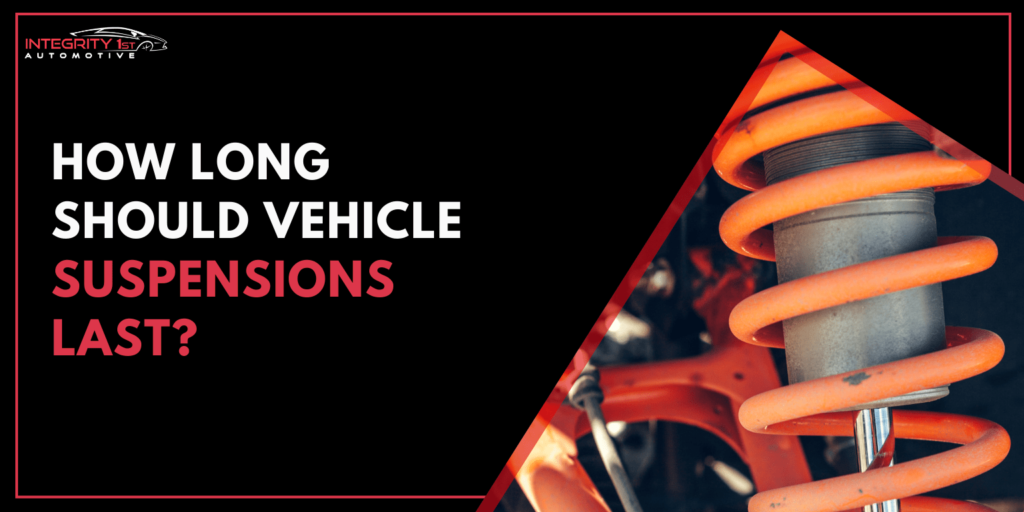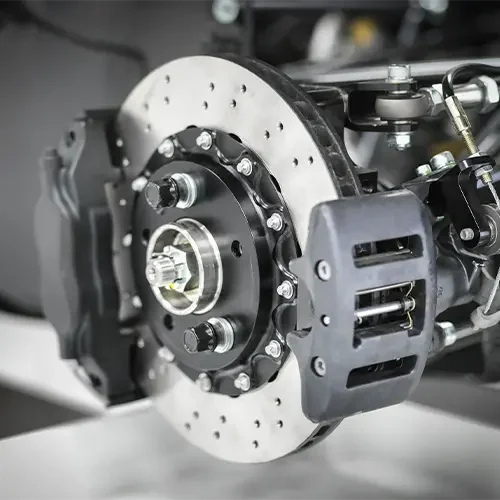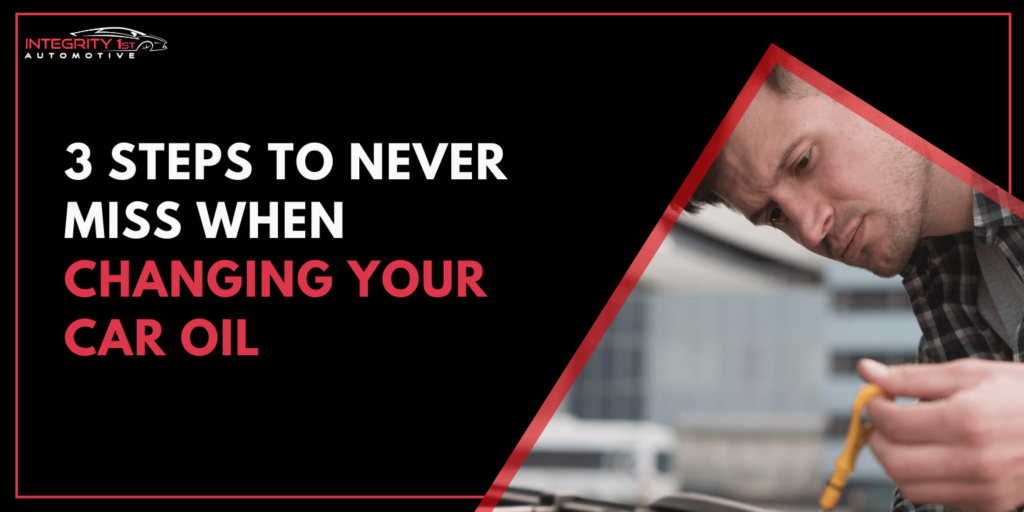
How Long Should Vehicle Suspensions Last?
If you are wondering how long your vehicle’s suspension system
Don’t trust your Brakes to chance. Stop by Integrity 1st Automotive! Our experts provide a thorough inspection and handle complete brake care, ensuring safe stops and lasting performance. Find a nearby location and schedule your appointment online in minutes!
At Integrity 1st Automotive, your safety is our top priority. That’s why we offer comprehensive brake repair services inspections, repairs, and replacements to ensure your car’s braking system functions safely and effectively. Our experts perform a meticulous inspection of both disc and drum brake systems. This includes thoroughly checking the condition of rotors, pads, and calipers in disc brakes, and drums, shoes, and cylinders in drum brakes. We identify any signs of wear and tear, damage, or leaks, ensuring no potential problems go unnoticed.
Our service doesn’t stop at just inspection. Our experts will handle all necessary repairs to restore your braking system to peak performance. Additionally every brake repair comes with a complimentary wheel alignment check. This ensures your wheels are properly aligned for optimal handling and tire wear, providing you with a complete peace-of-mind driving experience. Brake Services include:

EXCELLENT
Stop ignoring the signs! Worn brakes can lead to accidents. Here are some key indicators you might need brake repairs:

Hear that grinding, squealing, or metal scraping coming from your brakes? Don't wait! These harsh noises are a warning sign that your brake pads are worn down.
A soft or spongy feeling when pressing the brake pedal can be caused by air in the brake lines, a leak in the system, or a failing master cylinder.
Steering wheel shaking or car wobbling when braking? Warped rotors, uneven pads, or brake issues could be at fault. Get it checked!
The brake light warns of issues like low fluid or parking brake problems. The ABS light signals a malfunction in the Anti-Lock Braking System, which could prevent the wheels from locking up during hard braking.
Keeping your brakes in top shape is crucial for safe driving. While routine auto maintenance schedules vary depending on your car and driving habits.
Frequent city driving with stop-and-go traffic increases brake stress, necessitating more frequent inspections or repairs, perhaps every 6,000 miles. Conversely, mostly highway driving imposes less wear on brakes, potentially extending inspection intervals.
By being proactive with brake maintenance, you’ll enjoy peace of mind on the road and avoid unnecessary repairs in the future. The frequency of brake repairs and brake maintenance depends on several factors, but here’s a general guideline:
Routine Maintenance: A good rule of thumb is to get your brakes inspected every 12,000 to 18,000 miles by a qualified mechanic. They’ll check pad thickness, rotor condition, and overall system health.
Warning Signs: Don’t wait for a scheduled inspection if you experience warning signs like grinding noises, a spongy pedal, or vibrations when braking. Aggressive city driving can also put more stress on your brakes, potentially requiring more frequent checkups.
Vehicle Manual: Remember, your car’s owner’s manual might have specific brake service intervals, and a trusted mechanic can personalize a plan based on your driving habits.
When it comes to your brakes, trust matters. Don’t settle for just any mechanic. Visit your nearest Integrity 1st Automotive, your one-stop shop for complete vehicle care services, offering expertise, transparency, and a commitment to your safety. Here what sets us apart:
At Integrity 1st Automotive, your safety is our top concern. Our brake services are comprehensive and ensure your vehicle comes to a complete stop every single time.
We don't just fix brakes, we master them. Our certified technicians provide complete brake care, inspecting everything from pads to rotors, and using only top-of-the-line parts for lasting performance.
Our experts will explain everything clearly, recommend needed auto repairs (no pressure!), and offer convenient scheduling options.
We're committed to exceeding your expectations and building long-term relationships with our customers. Enjoy peace of mind with our warranty on parts and labor, ensuring your investment is protected.
Schedule your vehicle's next service hassle-free with our convenient booking system. Expert care is just a click away.
Curious about repair costs? Receive a transparent estimate tailored to your needs. No surprises, just honest pricing.
Have questions or concerns? Our friendly team is ready to assist you. Reach out today for personalized assistance.

Brake repair refers to fixing specific problems within the braking system. It’s essentially any service that restores a malfunctioning brake system to proper working order.
The most common brake repair is replacing brake pads. As they wear down through friction during braking, they eventually need to be swapped for new ones to maintain safe stopping power.
Replacing calipers is the most complex and expensive aspect of the braking system. A single caliper can cost up to $130, with prices for multiple calipers often even higher. A full brake repair, including pad, rotor, and caliper replacement, typically falls within the range of $300 to $800.
Brake maintenance encompasses a range of services i.e brake inspections, cleaning and lubrication, minor adjustments to keep your braking system functioning optimally.
A full brake service usually involves a comprehensive inspection of the entire braking system, followed by any necessary repairs or replacements. This might include:
Brake fluid should be changed every 2-3 years to remove moisture and maintain its effectiveness. However, consult your car’s owner’s manual for specific recommendations on brake fluid change intervals for your vehicle.
Generally, brake pads can last anywhere from 25,000 to 70,000 miles. However, it’s crucial to get regular inspections (every 12,000-18,000 miles) to monitor pad thickness and ensure they’re replaced before they wear down completely.
A flashlight can be handy for inspecting brake pads closely. If the pads appear thin, measuring less than 1/4 inch, it’s likely time for replacement. Some pads feature a wear indicator slot in the center; if this slot is no longer visible or barely discernible, it indicates the need for new brake pads.

If you are wondering how long your vehicle’s suspension system

If you are asking yourself, “why does my car shake

Did you know that failing to change your oil regularly

Integrity is doing the right thing, even when no one is watching. Whether you need an oil change, a new set of brake pads, a wheel alignment, or a diagnosis on that pesky check engine light – we do it all.
© 2025 Integrity 1st Automotive. All Rights Reserved.
Do You Like Coupons?
Sign up to receive 3 coupons each year!